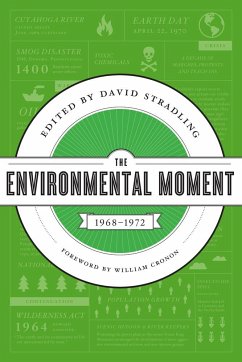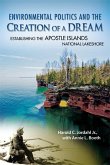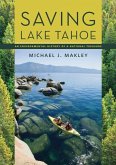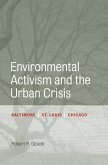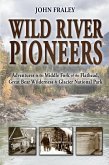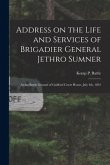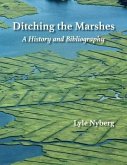- Broschiertes Buch
- Merkliste
- Auf die Merkliste
- Bewerten Bewerten
- Teilen
- Produkt teilen
- Produkterinnerung
- Produkterinnerung
David Stradling is professor of history at the University of Cincinnati. He is the author of Making Mountains: New York City and the Catskills and The Nature of New York: An Environmental History of the Empire State and editor of Conservation in the Progressive Era.
Andere Kunden interessierten sich auch für
![Environmental Politics and the Creation of a Dream: Establishing the Apostle Islands National Lakeshore Environmental Politics and the Creation of a Dream: Establishing the Apostle Islands National Lakeshore]() Harold C. JordahlEnvironmental Politics and the Creation of a Dream: Establishing the Apostle Islands National Lakeshore18,99 €
Harold C. JordahlEnvironmental Politics and the Creation of a Dream: Establishing the Apostle Islands National Lakeshore18,99 €![Saving Lake Tahoe: An Environmental History of a National Treasure Saving Lake Tahoe: An Environmental History of a National Treasure]() Michael J. MakleySaving Lake Tahoe: An Environmental History of a National Treasure25,99 €
Michael J. MakleySaving Lake Tahoe: An Environmental History of a National Treasure25,99 €![Fishing in Contested Waters Fishing in Contested Waters]() Sarah KingFishing in Contested Waters36,99 €
Sarah KingFishing in Contested Waters36,99 €![Environmental Activism and the Urban Crisis Environmental Activism and the Urban Crisis]() Robert GioielliEnvironmental Activism and the Urban Crisis28,99 €
Robert GioielliEnvironmental Activism and the Urban Crisis28,99 €![Wild River Pioneers (2nd Ed): Adventures in the Middle Fork of the Flathead, Great Bear Wilderness, and Glacier Np, New & Updated Wild River Pioneers (2nd Ed): Adventures in the Middle Fork of the Flathead, Great Bear Wilderness, and Glacier Np, New & Updated]() John FraleyWild River Pioneers (2nd Ed): Adventures in the Middle Fork of the Flathead, Great Bear Wilderness, and Glacier Np, New & Updated17,99 €
John FraleyWild River Pioneers (2nd Ed): Adventures in the Middle Fork of the Flathead, Great Bear Wilderness, and Glacier Np, New & Updated17,99 €![Address on the Life and Services of Brigadier General Jethro Sumner: at the Battle Ground of Guilford Court House, July 4th, 1891 Address on the Life and Services of Brigadier General Jethro Sumner: at the Battle Ground of Guilford Court House, July 4th, 1891]() Address on the Life and Services of Brigadier General Jethro Sumner: at the Battle Ground of Guilford Court House, July 4th, 189115,99 €
Address on the Life and Services of Brigadier General Jethro Sumner: at the Battle Ground of Guilford Court House, July 4th, 189115,99 €![Ditching the Marshes: A History and Bibliography Ditching the Marshes: A History and Bibliography]() Lyle NybergDitching the Marshes: A History and Bibliography10,99 €
Lyle NybergDitching the Marshes: A History and Bibliography10,99 €-
-
-
David Stradling is professor of history at the University of Cincinnati. He is the author of Making Mountains: New York City and the Catskills and The Nature of New York: An Environmental History of the Empire State and editor of Conservation in the Progressive Era.
Produktdetails
- Produktdetails
- Verlag: University of Washington Press
- Seitenzahl: 160
- Erscheinungstermin: 28. März 2012
- Englisch
- Abmessung: 229mm x 153mm x 12mm
- Gewicht: 322g
- ISBN-13: 9780295991818
- ISBN-10: 029599181X
- Artikelnr.: 35054398
- Herstellerkennzeichnung
- Libri GmbH
- Europaallee 1
- 36244 Bad Hersfeld
- gpsr@libri.de
- Verlag: University of Washington Press
- Seitenzahl: 160
- Erscheinungstermin: 28. März 2012
- Englisch
- Abmessung: 229mm x 153mm x 12mm
- Gewicht: 322g
- ISBN-13: 9780295991818
- ISBN-10: 029599181X
- Artikelnr.: 35054398
- Herstellerkennzeichnung
- Libri GmbH
- Europaallee 1
- 36244 Bad Hersfeld
- gpsr@libri.de
David Stradling is professor of history at the University of Cincinnati. He is the author of Making Mountains: New York City and the Catskills and The Nature of New York: An Environmental History of the Empire State and editor of Conservation in the Progressive Era.
Foreword by William Cronon
Acknowledgments
Introduction
Part 1. Warnings
"Air Pollution in Donora, PA: Epidemiology of the Unusual Smog Episode of
October 1948, Preliminary Report"
Paul Shepard, "The Place of Nature in Man's World," The Atlantic Naturalist
(1958)
Howard Zahniser, "Wilderness Forever" (1961)
Rachel Carson, Silent Spring (1962)
Carl Carmer, Testimony before the Federal Power Commission in the Matter of
Consolidated Edison (1964)
Part 2. A Dying Planet
Paul R. Ehrlich, The Population Bomb (1968)
Stewart Brand, Whole Earth Catalog (1969)
Jack Newfield, "Lead Poisoning: Silent Epidemic in the Slums," Village
Voice (1969)
Daniel W. Hannan, Testimony before the Allegheny County Commissioners
(1969)
United Auto Workers, Letter Initiating Down River Anti-Pollution League
(1969)
Dr. N. K. Sanders, "The Santa Barbara Oil Spill: Impact on Environment"
(1969)
Seattle-King County Department of Public Health, Annual Report, 1969
Part 3. Earth Year 59
The National Environmental Policy Act of 1969
Editorial, National Review Bulletin (1970)
Citizens Association of Beaufort County, "Is This What You Want for South
Carolina's Waters?" Columbia Record (1970)
Richard Nixon, "Special Message to the Congress on Environmental Quality"
(1970)
Frank Herbert, "How Indians Would Use Fort," Seattle Post-Intelligencer
(1970)
Barry Commoner, Harvard University Lecture (1970)
Walt Kelly, Pogo Poster: "We Have Met the Enemy, and He Is Us" (1970)
Gaylord Nelson, Earth Day Speech, Denver, Colorado (1970)
Nathan Hare, "Black Ecology," The Black Scholar (1970)
Letters from Schoolchildren to Carl Stokes, Mayor of Cleveland (1970)
Representative Louis Stokes, Address in Congress Supporting Rivers and
Harbors and Flood Control Act of 1970 (1970)
Ray Osrin, "Someday Son, All This Will Be Yours," Cleveland Plain Dealer
(1970)
Eleanor Phinney, Letter to the Oregon Environmental Council (1970)
Group Against Smog and Pollution (GASP), Public Service Announcements
(1970)
Clean Air Act Amendments (1970)
Part 4. Is Cata strophe Coming?
A Select Committee of the University of Montana, "Report on the Bitterroot
National Forest" (1970)
Dale A. Burk, Photograph of the Bitterroot Forest, Montana (1971)
Governor Ronald Reagan, Remarks before the American Petroleum Institute
(1971)
Dr. Joseph T. Ling, Testimony Regarding the Water Pollution Control Act
(1971)
Council of the Southern Mountains, "We Will Stop the Bulldozers" (1972)
William O. Douglas, Dissent, Sierra Club v. Morton (1972)
John Maddox, "Is Catastrophe Coming?," The Doomsday Syndrome (1972)
Declaration of the United Nations Conference on the Human Environment
(1972)
Part 5. Continuation
Jimmy Carter, "The Energy Problem: Address to the Nation" (1977)
Robert A. Roland, Statement Regarding Superfund (1979)
A Mother's Reflections on the Love Canal Disaster (1982)
Dr. James E. Hansen, Testimony Regarding the Greenhouse Effect and Global
Climate Change (1987)
Bibliographical Essay
Index
Acknowledgments
Introduction
Part 1. Warnings
"Air Pollution in Donora, PA: Epidemiology of the Unusual Smog Episode of
October 1948, Preliminary Report"
Paul Shepard, "The Place of Nature in Man's World," The Atlantic Naturalist
(1958)
Howard Zahniser, "Wilderness Forever" (1961)
Rachel Carson, Silent Spring (1962)
Carl Carmer, Testimony before the Federal Power Commission in the Matter of
Consolidated Edison (1964)
Part 2. A Dying Planet
Paul R. Ehrlich, The Population Bomb (1968)
Stewart Brand, Whole Earth Catalog (1969)
Jack Newfield, "Lead Poisoning: Silent Epidemic in the Slums," Village
Voice (1969)
Daniel W. Hannan, Testimony before the Allegheny County Commissioners
(1969)
United Auto Workers, Letter Initiating Down River Anti-Pollution League
(1969)
Dr. N. K. Sanders, "The Santa Barbara Oil Spill: Impact on Environment"
(1969)
Seattle-King County Department of Public Health, Annual Report, 1969
Part 3. Earth Year 59
The National Environmental Policy Act of 1969
Editorial, National Review Bulletin (1970)
Citizens Association of Beaufort County, "Is This What You Want for South
Carolina's Waters?" Columbia Record (1970)
Richard Nixon, "Special Message to the Congress on Environmental Quality"
(1970)
Frank Herbert, "How Indians Would Use Fort," Seattle Post-Intelligencer
(1970)
Barry Commoner, Harvard University Lecture (1970)
Walt Kelly, Pogo Poster: "We Have Met the Enemy, and He Is Us" (1970)
Gaylord Nelson, Earth Day Speech, Denver, Colorado (1970)
Nathan Hare, "Black Ecology," The Black Scholar (1970)
Letters from Schoolchildren to Carl Stokes, Mayor of Cleveland (1970)
Representative Louis Stokes, Address in Congress Supporting Rivers and
Harbors and Flood Control Act of 1970 (1970)
Ray Osrin, "Someday Son, All This Will Be Yours," Cleveland Plain Dealer
(1970)
Eleanor Phinney, Letter to the Oregon Environmental Council (1970)
Group Against Smog and Pollution (GASP), Public Service Announcements
(1970)
Clean Air Act Amendments (1970)
Part 4. Is Cata strophe Coming?
A Select Committee of the University of Montana, "Report on the Bitterroot
National Forest" (1970)
Dale A. Burk, Photograph of the Bitterroot Forest, Montana (1971)
Governor Ronald Reagan, Remarks before the American Petroleum Institute
(1971)
Dr. Joseph T. Ling, Testimony Regarding the Water Pollution Control Act
(1971)
Council of the Southern Mountains, "We Will Stop the Bulldozers" (1972)
William O. Douglas, Dissent, Sierra Club v. Morton (1972)
John Maddox, "Is Catastrophe Coming?," The Doomsday Syndrome (1972)
Declaration of the United Nations Conference on the Human Environment
(1972)
Part 5. Continuation
Jimmy Carter, "The Energy Problem: Address to the Nation" (1977)
Robert A. Roland, Statement Regarding Superfund (1979)
A Mother's Reflections on the Love Canal Disaster (1982)
Dr. James E. Hansen, Testimony Regarding the Greenhouse Effect and Global
Climate Change (1987)
Bibliographical Essay
Index
Foreword by William Cronon
Acknowledgments
Introduction
Part 1. Warnings
"Air Pollution in Donora, PA: Epidemiology of the Unusual Smog Episode of
October 1948, Preliminary Report"
Paul Shepard, "The Place of Nature in Man's World," The Atlantic Naturalist
(1958)
Howard Zahniser, "Wilderness Forever" (1961)
Rachel Carson, Silent Spring (1962)
Carl Carmer, Testimony before the Federal Power Commission in the Matter of
Consolidated Edison (1964)
Part 2. A Dying Planet
Paul R. Ehrlich, The Population Bomb (1968)
Stewart Brand, Whole Earth Catalog (1969)
Jack Newfield, "Lead Poisoning: Silent Epidemic in the Slums," Village
Voice (1969)
Daniel W. Hannan, Testimony before the Allegheny County Commissioners
(1969)
United Auto Workers, Letter Initiating Down River Anti-Pollution League
(1969)
Dr. N. K. Sanders, "The Santa Barbara Oil Spill: Impact on Environment"
(1969)
Seattle-King County Department of Public Health, Annual Report, 1969
Part 3. Earth Year 59
The National Environmental Policy Act of 1969
Editorial, National Review Bulletin (1970)
Citizens Association of Beaufort County, "Is This What You Want for South
Carolina's Waters?" Columbia Record (1970)
Richard Nixon, "Special Message to the Congress on Environmental Quality"
(1970)
Frank Herbert, "How Indians Would Use Fort," Seattle Post-Intelligencer
(1970)
Barry Commoner, Harvard University Lecture (1970)
Walt Kelly, Pogo Poster: "We Have Met the Enemy, and He Is Us" (1970)
Gaylord Nelson, Earth Day Speech, Denver, Colorado (1970)
Nathan Hare, "Black Ecology," The Black Scholar (1970)
Letters from Schoolchildren to Carl Stokes, Mayor of Cleveland (1970)
Representative Louis Stokes, Address in Congress Supporting Rivers and
Harbors and Flood Control Act of 1970 (1970)
Ray Osrin, "Someday Son, All This Will Be Yours," Cleveland Plain Dealer
(1970)
Eleanor Phinney, Letter to the Oregon Environmental Council (1970)
Group Against Smog and Pollution (GASP), Public Service Announcements
(1970)
Clean Air Act Amendments (1970)
Part 4. Is Cata strophe Coming?
A Select Committee of the University of Montana, "Report on the Bitterroot
National Forest" (1970)
Dale A. Burk, Photograph of the Bitterroot Forest, Montana (1971)
Governor Ronald Reagan, Remarks before the American Petroleum Institute
(1971)
Dr. Joseph T. Ling, Testimony Regarding the Water Pollution Control Act
(1971)
Council of the Southern Mountains, "We Will Stop the Bulldozers" (1972)
William O. Douglas, Dissent, Sierra Club v. Morton (1972)
John Maddox, "Is Catastrophe Coming?," The Doomsday Syndrome (1972)
Declaration of the United Nations Conference on the Human Environment
(1972)
Part 5. Continuation
Jimmy Carter, "The Energy Problem: Address to the Nation" (1977)
Robert A. Roland, Statement Regarding Superfund (1979)
A Mother's Reflections on the Love Canal Disaster (1982)
Dr. James E. Hansen, Testimony Regarding the Greenhouse Effect and Global
Climate Change (1987)
Bibliographical Essay
Index
Acknowledgments
Introduction
Part 1. Warnings
"Air Pollution in Donora, PA: Epidemiology of the Unusual Smog Episode of
October 1948, Preliminary Report"
Paul Shepard, "The Place of Nature in Man's World," The Atlantic Naturalist
(1958)
Howard Zahniser, "Wilderness Forever" (1961)
Rachel Carson, Silent Spring (1962)
Carl Carmer, Testimony before the Federal Power Commission in the Matter of
Consolidated Edison (1964)
Part 2. A Dying Planet
Paul R. Ehrlich, The Population Bomb (1968)
Stewart Brand, Whole Earth Catalog (1969)
Jack Newfield, "Lead Poisoning: Silent Epidemic in the Slums," Village
Voice (1969)
Daniel W. Hannan, Testimony before the Allegheny County Commissioners
(1969)
United Auto Workers, Letter Initiating Down River Anti-Pollution League
(1969)
Dr. N. K. Sanders, "The Santa Barbara Oil Spill: Impact on Environment"
(1969)
Seattle-King County Department of Public Health, Annual Report, 1969
Part 3. Earth Year 59
The National Environmental Policy Act of 1969
Editorial, National Review Bulletin (1970)
Citizens Association of Beaufort County, "Is This What You Want for South
Carolina's Waters?" Columbia Record (1970)
Richard Nixon, "Special Message to the Congress on Environmental Quality"
(1970)
Frank Herbert, "How Indians Would Use Fort," Seattle Post-Intelligencer
(1970)
Barry Commoner, Harvard University Lecture (1970)
Walt Kelly, Pogo Poster: "We Have Met the Enemy, and He Is Us" (1970)
Gaylord Nelson, Earth Day Speech, Denver, Colorado (1970)
Nathan Hare, "Black Ecology," The Black Scholar (1970)
Letters from Schoolchildren to Carl Stokes, Mayor of Cleveland (1970)
Representative Louis Stokes, Address in Congress Supporting Rivers and
Harbors and Flood Control Act of 1970 (1970)
Ray Osrin, "Someday Son, All This Will Be Yours," Cleveland Plain Dealer
(1970)
Eleanor Phinney, Letter to the Oregon Environmental Council (1970)
Group Against Smog and Pollution (GASP), Public Service Announcements
(1970)
Clean Air Act Amendments (1970)
Part 4. Is Cata strophe Coming?
A Select Committee of the University of Montana, "Report on the Bitterroot
National Forest" (1970)
Dale A. Burk, Photograph of the Bitterroot Forest, Montana (1971)
Governor Ronald Reagan, Remarks before the American Petroleum Institute
(1971)
Dr. Joseph T. Ling, Testimony Regarding the Water Pollution Control Act
(1971)
Council of the Southern Mountains, "We Will Stop the Bulldozers" (1972)
William O. Douglas, Dissent, Sierra Club v. Morton (1972)
John Maddox, "Is Catastrophe Coming?," The Doomsday Syndrome (1972)
Declaration of the United Nations Conference on the Human Environment
(1972)
Part 5. Continuation
Jimmy Carter, "The Energy Problem: Address to the Nation" (1977)
Robert A. Roland, Statement Regarding Superfund (1979)
A Mother's Reflections on the Love Canal Disaster (1982)
Dr. James E. Hansen, Testimony Regarding the Greenhouse Effect and Global
Climate Change (1987)
Bibliographical Essay
Index

